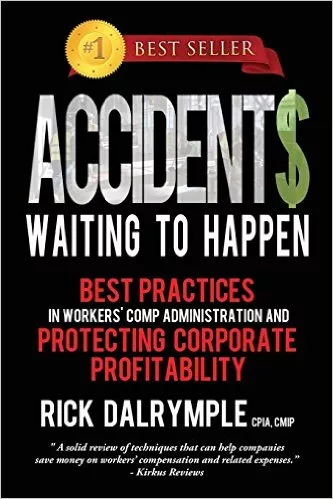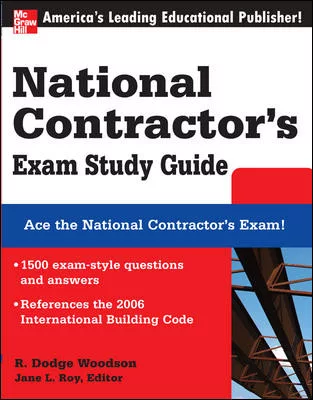Legally Speaking: Manage Your Legal Exposure by Reviewing Overtime Standards
For many employers, properly calculating overtime can feel like an unending process. Factoring in meal and break times can be complicated since meal times are generally unpaid and breaks are paid time.

For many employers, properly calculating overtime can feel like an unending process. Factoring in meal and break times can be complicated since meal times are generally unpaid and breaks are paid time. Some employees who may seem exempt from overtime may actually be entitled to it under the Fair Labor Standards Act (FLSA). Unfortunately, miscalculating overtime can be extremely costly for companies in terms of fines and lawsuits. And the U.S. federal government has just made it easier for unhappy employees to find lawyers willing to sue companies over alleged FLSA overtime violations.
Last December, with the blessing of Congress, the U.S. Department of Labor set up an “attorney referral service” for employees who think they may have a claim under FLSA or the Family and Medical Leave Act (FMLA). Under this new program, called Bridge to Justice, the Wage and Hour Division of the DOL connects would-be plaintiffs and attorneys who are able to file lawsuits against employers on the employees’ behalf. The Wage and Hour Division has partnered with the American Bar Association to find lawyers for the program, which employees can access through a toll-free phone number.
In announcing Bridge to Justice, the division cited its own limited resources in pursuing claims. “In the past, for those workers it did not have the capacity to assist, the Wage and Hour Division simply informed the workers that, even though they may have valid claims under the FLSA or the FMLA, the Wage and Hour (Division) was declining to pursue their claims further and that they have a private right of action under the applicable statute,” the division announced. “However, attempting to exercise rights on their own, or finding an attorney with the necessary experience and subject matter expertise to represent them, are significant and difficult obstacles to these workers obtaining justice. When it is difficult for workers to pursue redress for denied rights, it makes it easier for those employers who exploit their workers to obtain an unfair competitive advantage, which denies law-abiding employers a level playing field.”
The DOL has been actively pursuing claims of FLSA violations. According to reports, in fiscal year 2010 more than 208,000 employees received a total of $175.6 million in minimum wage and overtime back wages because of FLSA violations. Most of that - $113 million - was due to overtime violations.
Along with DOL actions, more employees are filing lawsuits against their employers claiming they were not paid what they were owed. According to most reports, the number of FLSA lawsuits filed in federal courts in 2010 grew significantly over the number filed in 2009. Many of the lawsuits include claims for work off the clock that is arguably compensable under FLSA rules.
Given this ever increasing number of lawsuits, employers should take the time to review their overtime policies to ensure full compliance with FLSA. Anything short of full compliance places employers at risk of lawsuits and fines.
Some employers may assume that any employee who is salaried, rather than hourly, is exempt from overtime. But that is not necessarily the case. The DOL looks at job duties, rather than payment type, when deciding whether an employee is eligible for overtime.
According to the DOL, exempt employees include executive, administrative, and professional employees, as well as outside sales employees and some computer professionals. Some positions, like a CEO, are clearly exempt, but others can be less obvious. Even large companies get tripped up on classification issues. Last July, the U.S. Court of Appeals for the Second Circuit found that Novartis Pharmaceuticals Corp. misclassified some of its sales representatives as exempt. According to the appeals court ruling, because of their job functions, the employees were eligible for overtime pay which they had not been receiving.
Even when companies have properly classified employees as not exempt from overtime, they can still make mistakes. Last May, call-center operator Teleperformance USA paid nearly $2 million in back wages for overtime violations to more than 15,000 workers. According to the DOL, most of the violations occurred when the company failed to pay for breaks that were less than 30 minutes. If the breaks had been properly factored in, the employees should have received overtime for some of the hours they worked. The DOL also found that Teleperformance USA should have put employees on the clock when they were waiting for a work area to open up. The DOL also found that a few Teleperformance USA employees had been misclassified as exempt when they were actually eligible for overtime.
• Regularly review overtime policies: In order to make sure that overtime policies are accurate and enforced at every level and location, companies should consider creating a team to regularly review overtime standards. This team should include either inside attorneys or outside counsel, along with human resources personnel.
State and local governments often have their own laws regarding minimum wage and overtime, so it’s important that the review take into account all the relevant wage and hour laws. When reviewing overtime policies, look at every level of employee classification to make sure those who are classified as exempt really should be. The DOL offers information about job classifications on its website at http://www.dol.gov/dol/topic/wages/overtimepay.htm. Involve managers, supervisors, HR and the legal department in the process for better insights into job descriptions and duties.
• Educate managers: Companies should also regularly train their managers and supervisors about FLSA and overtime issues, and then implement a zero-tolerance policy for violations. When employees have concerns or questions about whether they are being properly paid overtime, they should know who to approach with their questions. Companies should clearly explain how employees, managers, and supervisors can report potential violations up the chain of command.
• Stay up on current trends: Employers should be aware of new policies and priorities from the DOL, such as the Bridge to Justice program. They should keep an eye on emerging trends in lawsuits. For example, some plaintiffs’ lawyers have begun claiming violations of the Racketeering and Corrupt Organizations Act (RICO), along with FLSA violations. The penalties for RICO are more costly than they are for FLSA violations.
• Know your industry: Some industries are more prone to FLSA violations, and employers in those industries need to pay close attention to overtime issues. While low-wage industries, such as restaurant, guard services, and health care rack up the most FLSA violations, according to DOL, the roofing industry has exposure as well. Failure to pay overtime for activities that qualify as work time but are frequently not compensated is a common claim in all construction-related businesses.
• Donning and doffing issues: Employers often struggle to figure out when exactly non-exempt employees begin their shifts. According to the DOL, employees should be paid for the time they spend “donning and doffing,” or putting on and taking off protective gear. In June, Tyson Foods paid $500,000 in overtime back wages and agreed to a nationwide injunction that required its poultry workers to be paid for the time they spent donning, doffing, and sanitizing their equipment. Similar claims have been made at numerous other companies with costly results for those employers.
Overtime issues can be complicated, and companies who violate or allegedly violate state and federal laws can find themselves under the microscope of regulatory agencies or plaintiffs’ lawyers. To avoid these types of lawsuits and investigations, employers need should be proactive to ensure they are protected from charges of FLSA or state wage and hour violations.

For many employers, properly calculating overtime can feel like an unending process. Factoring in meal and break times can be complicated since meal times are generally unpaid and breaks are paid time. Some employees who may seem exempt from overtime may actually be entitled to it under the Fair Labor Standards Act (FLSA). Unfortunately, miscalculating overtime can be extremely costly for companies in terms of fines and lawsuits. And the U.S. federal government has just made it easier for unhappy employees to find lawyers willing to sue companies over alleged FLSA overtime violations.
Last December, with the blessing of Congress, the U.S. Department of Labor set up an “attorney referral service” for employees who think they may have a claim under FLSA or the Family and Medical Leave Act (FMLA). Under this new program, called Bridge to Justice, the Wage and Hour Division of the DOL connects would-be plaintiffs and attorneys who are able to file lawsuits against employers on the employees’ behalf. The Wage and Hour Division has partnered with the American Bar Association to find lawyers for the program, which employees can access through a toll-free phone number.
In announcing Bridge to Justice, the division cited its own limited resources in pursuing claims. “In the past, for those workers it did not have the capacity to assist, the Wage and Hour Division simply informed the workers that, even though they may have valid claims under the FLSA or the FMLA, the Wage and Hour (Division) was declining to pursue their claims further and that they have a private right of action under the applicable statute,” the division announced. “However, attempting to exercise rights on their own, or finding an attorney with the necessary experience and subject matter expertise to represent them, are significant and difficult obstacles to these workers obtaining justice. When it is difficult for workers to pursue redress for denied rights, it makes it easier for those employers who exploit their workers to obtain an unfair competitive advantage, which denies law-abiding employers a level playing field.”
The DOL has been actively pursuing claims of FLSA violations. According to reports, in fiscal year 2010 more than 208,000 employees received a total of $175.6 million in minimum wage and overtime back wages because of FLSA violations. Most of that - $113 million - was due to overtime violations.
Along with DOL actions, more employees are filing lawsuits against their employers claiming they were not paid what they were owed. According to most reports, the number of FLSA lawsuits filed in federal courts in 2010 grew significantly over the number filed in 2009. Many of the lawsuits include claims for work off the clock that is arguably compensable under FLSA rules.
Given this ever increasing number of lawsuits, employers should take the time to review their overtime policies to ensure full compliance with FLSA. Anything short of full compliance places employers at risk of lawsuits and fines.
FLSA Requirements
Figuring out overtime can be more complicated than it may seem at first. Employees eligible for overtime are to be paid at least one-and-a-half times their regular rate of pay for the time they work that is more than 40 hours in a week. Many employees are “exempt” from overtime, and the 40-hour per week rule doesn’t affect what they are paid, regardless of the number of hours they work in a given time period.Some employers may assume that any employee who is salaried, rather than hourly, is exempt from overtime. But that is not necessarily the case. The DOL looks at job duties, rather than payment type, when deciding whether an employee is eligible for overtime.
According to the DOL, exempt employees include executive, administrative, and professional employees, as well as outside sales employees and some computer professionals. Some positions, like a CEO, are clearly exempt, but others can be less obvious. Even large companies get tripped up on classification issues. Last July, the U.S. Court of Appeals for the Second Circuit found that Novartis Pharmaceuticals Corp. misclassified some of its sales representatives as exempt. According to the appeals court ruling, because of their job functions, the employees were eligible for overtime pay which they had not been receiving.
Even when companies have properly classified employees as not exempt from overtime, they can still make mistakes. Last May, call-center operator Teleperformance USA paid nearly $2 million in back wages for overtime violations to more than 15,000 workers. According to the DOL, most of the violations occurred when the company failed to pay for breaks that were less than 30 minutes. If the breaks had been properly factored in, the employees should have received overtime for some of the hours they worked. The DOL also found that Teleperformance USA should have put employees on the clock when they were waiting for a work area to open up. The DOL also found that a few Teleperformance USA employees had been misclassified as exempt when they were actually eligible for overtime.
Staying Compliant With FLSA
In order to avoid these types of fines and lawsuits, employers who haven’t taken a close look at the FLSA standards and their current practices should take the time to do it now.• Regularly review overtime policies: In order to make sure that overtime policies are accurate and enforced at every level and location, companies should consider creating a team to regularly review overtime standards. This team should include either inside attorneys or outside counsel, along with human resources personnel.
State and local governments often have their own laws regarding minimum wage and overtime, so it’s important that the review take into account all the relevant wage and hour laws. When reviewing overtime policies, look at every level of employee classification to make sure those who are classified as exempt really should be. The DOL offers information about job classifications on its website at http://www.dol.gov/dol/topic/wages/overtimepay.htm. Involve managers, supervisors, HR and the legal department in the process for better insights into job descriptions and duties.
• Educate managers: Companies should also regularly train their managers and supervisors about FLSA and overtime issues, and then implement a zero-tolerance policy for violations. When employees have concerns or questions about whether they are being properly paid overtime, they should know who to approach with their questions. Companies should clearly explain how employees, managers, and supervisors can report potential violations up the chain of command.
• Stay up on current trends: Employers should be aware of new policies and priorities from the DOL, such as the Bridge to Justice program. They should keep an eye on emerging trends in lawsuits. For example, some plaintiffs’ lawyers have begun claiming violations of the Racketeering and Corrupt Organizations Act (RICO), along with FLSA violations. The penalties for RICO are more costly than they are for FLSA violations.
• Know your industry: Some industries are more prone to FLSA violations, and employers in those industries need to pay close attention to overtime issues. While low-wage industries, such as restaurant, guard services, and health care rack up the most FLSA violations, according to DOL, the roofing industry has exposure as well. Failure to pay overtime for activities that qualify as work time but are frequently not compensated is a common claim in all construction-related businesses.
• Donning and doffing issues: Employers often struggle to figure out when exactly non-exempt employees begin their shifts. According to the DOL, employees should be paid for the time they spend “donning and doffing,” or putting on and taking off protective gear. In June, Tyson Foods paid $500,000 in overtime back wages and agreed to a nationwide injunction that required its poultry workers to be paid for the time they spent donning, doffing, and sanitizing their equipment. Similar claims have been made at numerous other companies with costly results for those employers.
Overtime issues can be complicated, and companies who violate or allegedly violate state and federal laws can find themselves under the microscope of regulatory agencies or plaintiffs’ lawyers. To avoid these types of lawsuits and investigations, employers need should be proactive to ensure they are protected from charges of FLSA or state wage and hour violations.
Looking for a reprint of this article?
From high-res PDFs to custom plaques, order your copy today!







